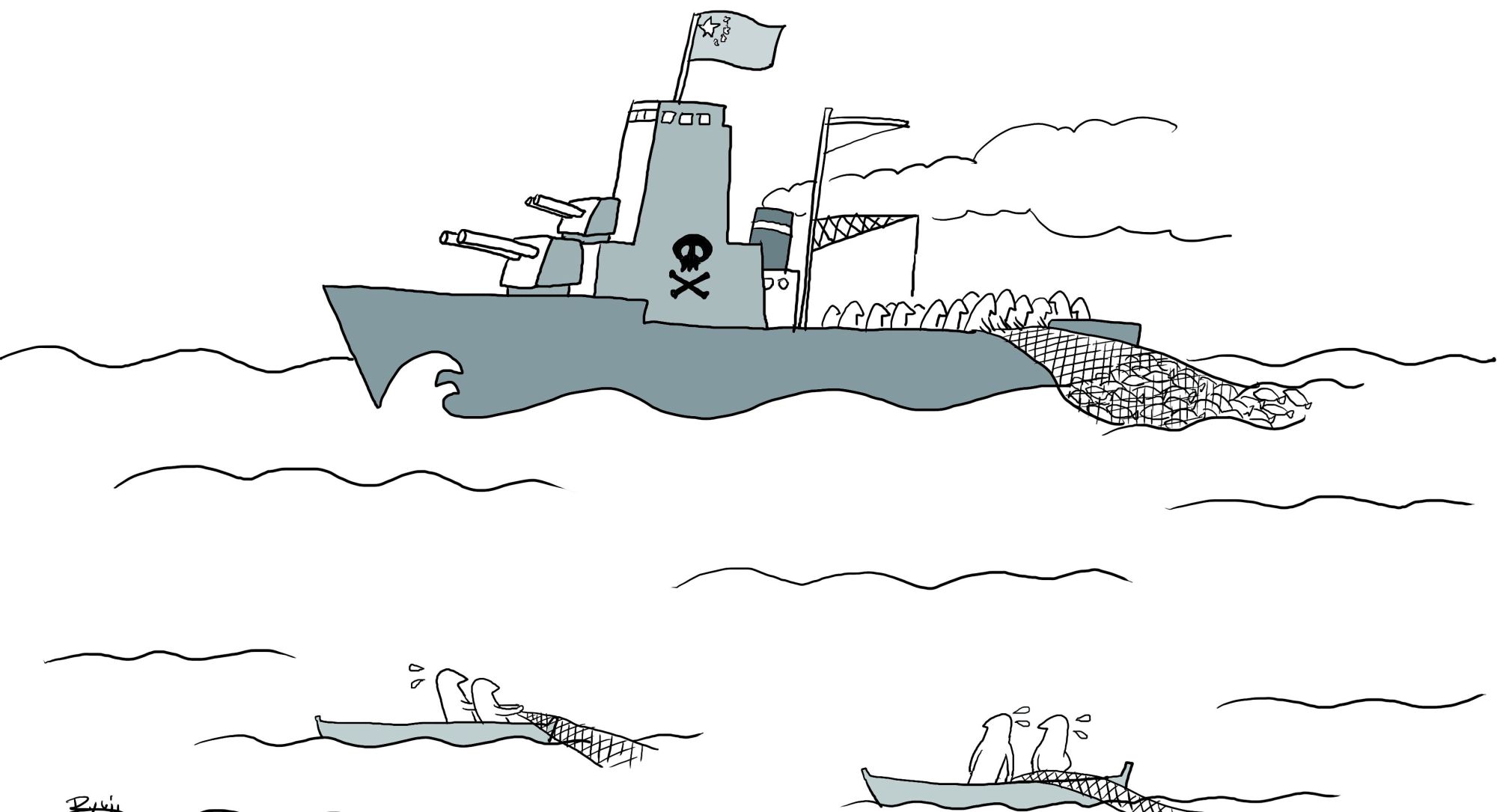Every time there is talk about a Japanese favorite seafood like Pacific saury and squid disappearing from tables due to a shortage in supplies, news reports tend to lay the blame on overexploitation of fish stocks by China. Very little is known, however, about the fact that China's pelagic fishing fleet has ballooned to about 3,000 vessels, and that the government of President Xi Jinping does not shy away from conflicts with other nations on the other side of the globe. Indeed, China is waging a fisheries war on a global scale.
Writing for The Washington Post in mid-September, James G. Stavridis, a retired U.S. admiral and former NATO supreme allied commander Europe, warned that China is waging a "hybrid warfare" in fisheries. He bitterly accused Beijing of mobilizing not only fishermen but also armed forces in a bid to secure fishery resources all over the world.
"Hybrid warfare" is a complex strategy of creating unrest in a country or area through conflicts among the citizens or destruction of infrastructure, and then sending the military in the pretext of quelling the violence. The way Russia annexed Crimea in 2014 is cited as a typical example of hybrid warfare.



